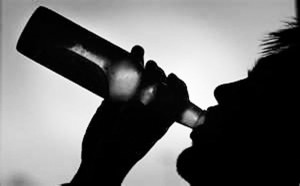Black women and girls least likely to binge drink
28th January 2013 · 0 Comments
By Alexis Taylor
Contributing Writer
(Special to the Trice Edney News Wire from the Afro American Newspaper) — One in five teenage high school girls are binge drinking and quickly headed down the road to alcohol abuse, according to new information released by the Centers for Disease Control and Prevention (CDC).
Binge drinking kills approximately 23,000 women and young girls annually.
“Binge drinking increases the chances of breast cancer, heart disease, sexually transmitted diseases, unintended pregnancy, and many other health problems,” the CDC said in its report, released in early January. “About one in eight women aged 18 years and older and one in five high school girls binge drink. Women who binge drink do so frequently—about three times a month—and have about six drinks per binge.”
According to the National Center for Biotechnology Information (NCBI), there is a clear difference between alcohol abuse, or drinking that can turn into a larger issue, and actual alcohol addiction, defined as drinking “despite problems with physical health, mental health, and social, family, or job responsibilities.”
The CDC report highlighted the fact that alcohol takes a bigger toll on the female body than it does on males who choose to imbibe the substance, due to the way the female body is built and how it breaks down alcohol. According to the CDC, less alcohol is needed for women to get drunk than is needed for men.
White and Hispanic women, and those with incomes over $75,000, are more likely to become binge drinkers, and 24 percent of women between the ages of 18 and 24 admitted to engaging in the activity.
Black women and girls were least likely to binge drink, with only 10 percent reporting that they drink excessively.
Pregnant women who drink also take on the added risk of hurting their fetus by decreasing birth weight and increasing the chances of birth defects.
The National Institute on Alcohol Abuse and Alcoholism put the number of Americans struggling with alcohol every year at 17.6 million. And while there is no official cause of onset, according to the NCBI, “research suggests that certain genes may increase the risk of alcoholism, but which genes and how they work are not known.”
Though genes may play a role, community and environment are also major factors, according to the CDC. The organization lists “alcohol’s price and availability” as contributing to the problem, along with adults who willingly buy minors liquor.
This article was originally published in the January 28, 2013 print edition of The Louisiana Weekly newspaper



